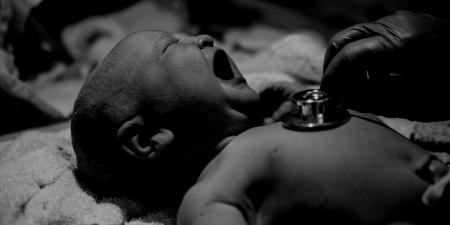Awareness entails the consistent effort to be mindful of the needs of individual patients and how effectively we might be meeting those needs, as well as our own. Vulnerability is inherent in the medical encounter, and learning to manage the needs and abilities of both patient and physician can be a central part of professional development. There is a tremendous amount of information which physicians must marshal during any one clinical encounter. Maintaining medical awareness is complex in its own right, and adding additional perspectives on informational, cultural, social, or spiritual needs may seem a daunting task, but the results are more effective and efficient care.
The idea of physicians as advocates for their patients or for groups of patients is not new, nor is the notion of physicians as instruments of social change anything radical. Still, the physician remains a potential source of effective support for the social needs of patients. Being a voice for awareness or for proper distribution of resources with respect to needs and responsibilities is an important part of both an individual and institutional commitment to the health of society. While activism in medicine is essential, care should be taken that zealous advocacy not become paternalism and that autonomy remains protected. We can advocate for access, increased medical literacy, and better quality of care, but patients must still be left to participate in their own health and their own health care.
While the category of professional responsibility is broad and multifaceted, it may be in part simply viewed as a call to citizenship and a duty to provide competent and compassionate care. If each patient is seen as having certain needs and vulnerabilities, then developing awareness of them and managing resources around the best mutually derived treatment plan comes close to what might be described as standard of care. In this light, there is a professional duty not only to provide care for populations who might be considered marginalized but also to cultivate an awareness of specific or individual vulnerabilities and to advocate for appropriate awareness and allocation of resources. Just as poverty and vulnerability extend through the biopsychosocial spectrum, so does professional responsibility apply to individuals, institutions, and professional societies, and the profession as a whole. The physician as social activist need not only be a personal battle or grassroots effort, but may also be an institutional, educational, or social position. None of these are mutually exclusive or isolated but rather are points on a continuum of commitment.
With these considerations, classroom discussion of a hypothetical Mrs. Jones who can't afford her diabetes medications can move beyond the dilemma of whether or not to support her on free samples. A perspective utilizing awareness, advocacy, and responsibility includes the difficult questions of distributive justice, and also allows for the exploration of whether or not Mrs. Jones understands about her disease and how to take her medication, whether the television commercials she is watching support or erode her dietary and exercise regimen, and how one might work as an individual or part of an institution to make changes at the biological, social, corporate, or political levels to make Mrs. Jones' participation in her own health care more effective. Mindfulness of these ideas can be part of daily practice if encouraged as part of the practice of good medicine.



